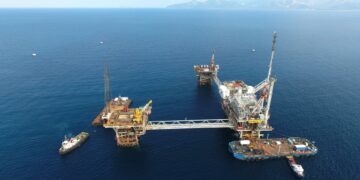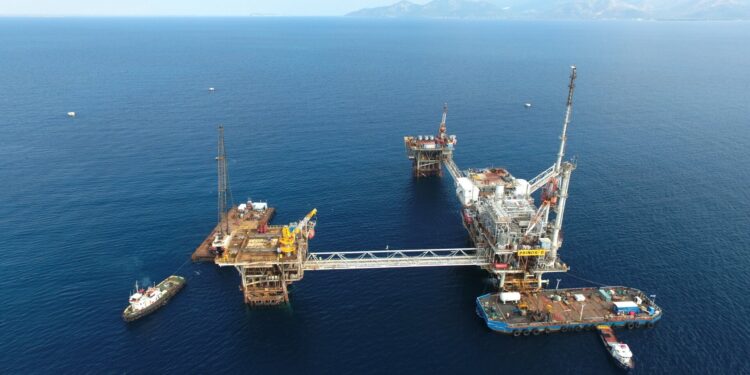Energean, a gas producer, is on the lookout for a strategic partner to undertake exploratory drilling in Block 2 of the Northwest Ionian Sea, which offers significant potential, according to the company.
In the first quarter, Energean’s daily production reached 180,000 barrels of oil equivalent (kboed), with 84% attributed to natural gas.
Simultaneously, development of the Katlan field in Israel is advancing, with plans to utilize capacity on the Nitsana pipeline to facilitate export opportunities from Israel to Egypt. Additionally, the company has signed new non-binding memoranda of understanding for coal storage in Prinos.
Rigas: We’re actively exploring mergers and acquisitions
Mathios Rigas, CEO of Energean, highlighted: “We have secured contract revenues of roughly $20 billion from our customers in Israel alone, establishing stable and predictable cash flows that shield Energean from market fluctuations and support our regular quarterly dividend of $0.30 per share.”
Rigas noted that “the Energean Power FPSO in Israel continues to function reliably, achieving a 96% uptime as of late April. The second oil unit project is on track for completion by the end of the second quarter of 2025, while the Katlan field is on schedule and budget for first gas production in the first half of 2027. We also see opportunities to extend production in the undeveloped Tanin and Arcadia areas.”
“In Greece, we are making significant progress in transforming Prinos into the first coal storage facility in the Eastern Mediterranean. In Egypt, we are collaborating with the government to enhance the terms of our offshore permits, preparing for drilling in the East Bir El Nus (EBEN) onshore concession. In Italy, we are seeking governmental approval for the development of the low-risk Vega West infrastructure, aimed at boosting production, optimizing cash flow, and extending the field’s lifespan,” he stated.
“Finally, we are actively assessing merger and acquisition opportunities, alongside organic growth options, with a focus on capital discipline in the broader Europe, Middle East, and Africa (EMEA) region, paving a new growth pathway that replicates our success in the Eastern Mediterranean,” Rigas added.
Source: ANA-MPA

















